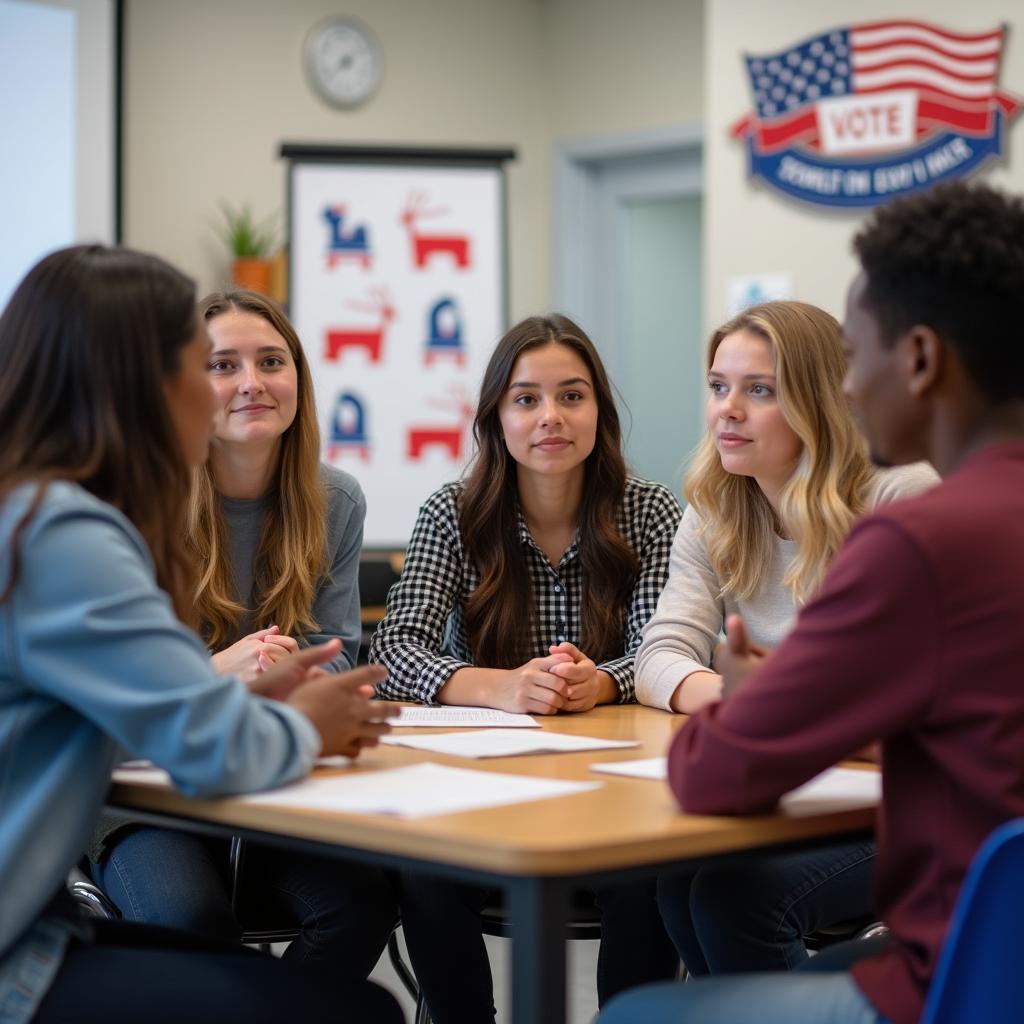The topic of lowering voting age has been a recurring theme in IELTS Writing Task 2, appearing approximately 3-4 times annually in recent years. Based on analysis of past exam questions, this topic frequently emerges in various forms, particularly focusing on the debate of lowering voting age to 16. Let’s examine one of the most common question formats on this subject.
Should the voting age be lowered to 16? This question has gained significant attention in recent IELTS examinations, reflecting ongoing global discussions about youth participation in democratic processes.
Question Analysis
Some people believe that the voting age should be lowered to 16 in all countries. To what extent do you agree or disagree with this statement? Give reasons for your answer and include relevant examples from your knowledge or experience.
This question requires candidates to:
- Take a clear position on lowering the voting age
- Provide logical arguments supporting their stance
- Include relevant examples
- Write at least 250 words

Sample Essay 1 (Band 8.5)
The debate about whether to reduce the voting age to 16 has gained momentum in many democratic societies. While some argue this would enhance youth participation in politics, I firmly disagree with this proposition due to several compelling reasons.
Firstly, at 16, most individuals are still developing their critical thinking abilities and may lack the maturity to make informed political decisions. Lower voting age to 16: agree or disagree? Research indicates that the prefrontal cortex, responsible for decision-making and judgment, continues developing until the mid-20s. Consequently, 16-year-olds might be more susceptible to manipulation by political propaganda or peer pressure, potentially compromising the integrity of the democratic process.
Moreover, teenagers at this age typically have limited real-world experience and understanding of complex political issues. Most 16-year-olds are still in secondary education, with minimal exposure to taxation, employment laws, or economic policies that significantly impact voting decisions. Without practical experience in these areas, their voting choices might not reflect the comprehensive understanding necessary for responsible civic participation.
However, this doesn’t mean young people should be entirely excluded from political discourse. Instead, the focus should be on improving civic education and creating meaningful opportunities for political engagement before they reach the current voting age. This could include mock elections in schools, youth parliaments, and community involvement programs that prepare them for future voting responsibilities.
Sample Essay 2 (Band 6.5)
Nowadays, many people think that teenagers who are 16 years old should be allowed to vote. I disagree with this idea because I think they are too young to vote.
The main reason is that 16-year-old people are not mature enough. They are still studying in school and don’t know much about politics and government. For example, most teenagers don’t read news or understand about taxes and laws. They might just vote for what their friends or parents tell them to do.
Also, young people can be easily influenced by social media and fake news. Many teenagers spend lots of time on TikTok and Instagram, where there is lots of wrong information about politics. Should voting be compulsory in democratic societies? They might make wrong choices because they believe everything they see online.
It is better if young people wait until they are 18 to vote. By this age, they will finish school and maybe start working. They can understand more about real life and make better decisions about voting. Countries should focus on teaching young people about politics instead of letting them vote too early.
Band Score Analysis
Band 8.5 Essay:
- Task Response (9): Clear position, fully developed arguments
- Coherence & Cohesion (8): Logical organization, effective paragraphing
- Lexical Resource (8): Sophisticated vocabulary use
- Grammar (9): Complex structures, error-free
Band 6.5 Essay:
- Task Response (6): Clear position but limited development
- Coherence & Cohesion (6): Basic organization
- Lexical Resource (7): Adequate vocabulary
- Grammar (7): Mix of simple and complex structures
Key Vocabulary
- prefrontal cortex (n) /ˌpriːˈfrʌntl ˈkɔːteks/ – the front part of the brain responsible for decision-making
- susceptible (adj) /səˈseptəbl/ – easily influenced or harmed
- civic participation (n) /ˈsɪvɪk pɑːˌtɪsɪˈpeɪʃn/ – involvement in community affairs
- propaganda (n) /ˌprɒpəˈɡændə/ – information used to promote political causes
- integrity (n) /ɪnˈteɡrəti/ – honesty and strong moral principles
Conclusion
The topic of voting age remains relevant for IELTS candidates. When practicing this topic, consider exploring related angles such as youth political engagement, democratic participation, and civic education. Share your practice essays in the comments for feedback and improvement suggestions.